Sometimes—not very often—a particularly cogent argument against reigning political common sense presents such a shock to the system that it becomes necessary to create an entire body of theory to refute it.
Articles
Articles and publications
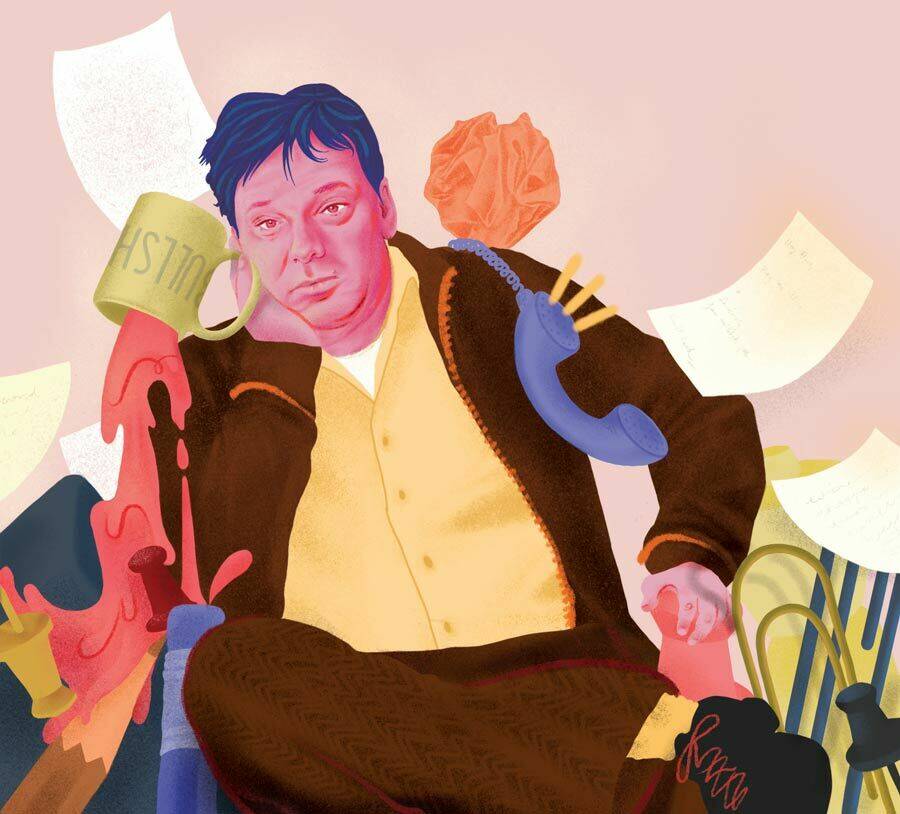
Is Your Job Bullshit? On Capitalism’s Endless Busywork
David Graeber had a hypothesis. The anthropologist grew up working-class in New York, and while his scholarship garnered accolades, he’s never felt at home in the world of academia.
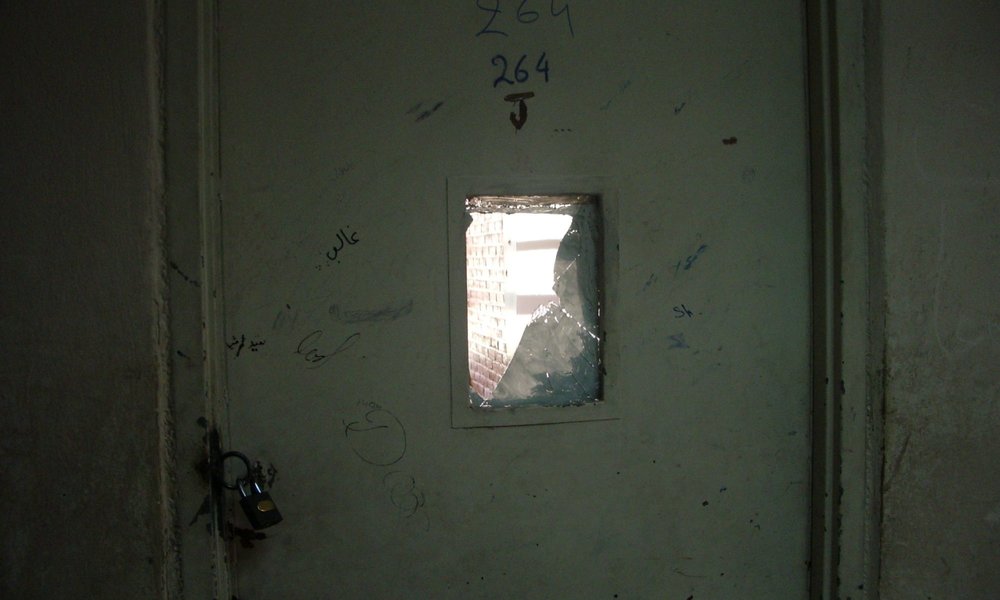
It Wasn’t a Tenure Case – A Personal Testimony, with Reflections
First of all allow me to remark how touched and honored I am to be put on the same list as James Mooney, who I’ve always admired, and Edmund Leach, who may have been the man who most inspired me to take up an anthropological career. Leach for me always been a model of intellectual freedom.
La Nuit debout against le Panama partout
For David Graeber, the social movement La Nuit Debout and the revelations made by the Panama Papers are the latest episode in a global struggle which pitts the oposing movements of the elite and powerful against the popular and revolutionary.
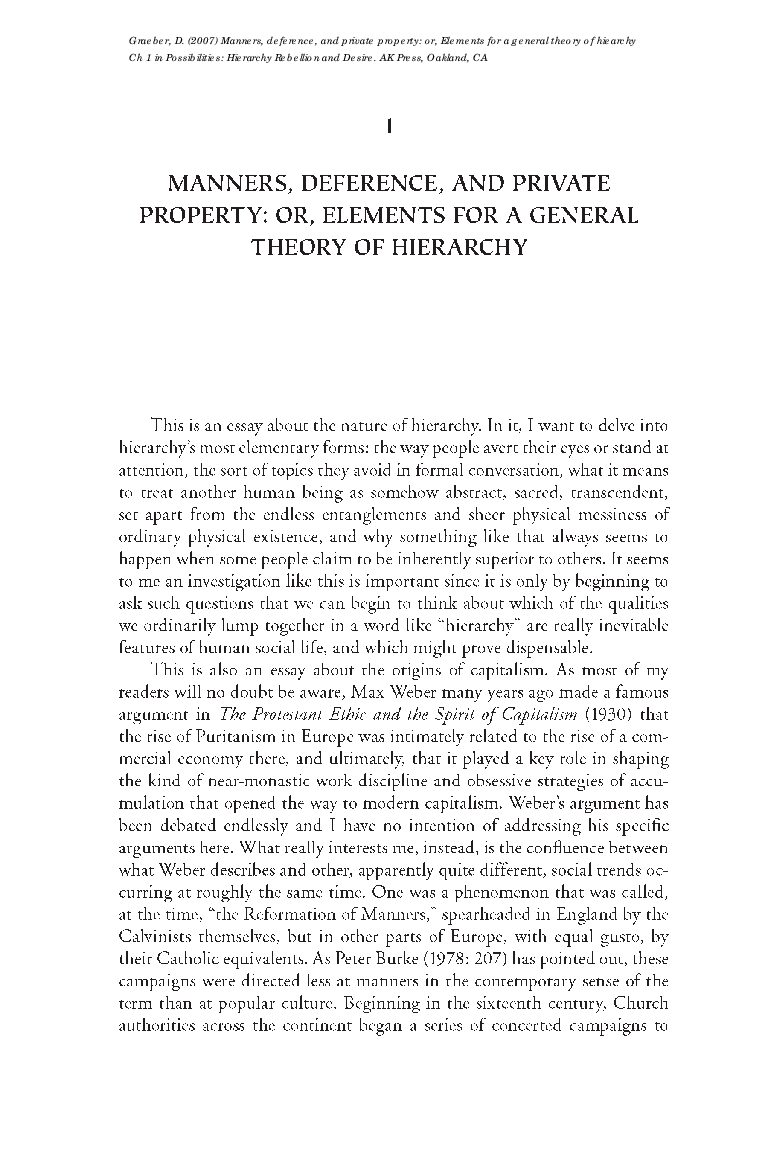
MANNERS, DEFERENCE, AND PRIVATE PROPERTY: OR, ELEMENTS FOR A GENERAL THEORY OF HIERARCHY
This is an essay about the nature of hierarchy. In it, I want to delve into hierarchy’s most elementary forms: the way people avert their eyes or stand at attention, the sort of topics they avoid in formal conversation, what it means to treat another human being as somehow abstract, sacred, transcendent, set apart from the endless entanglements and sheer physical messiness...
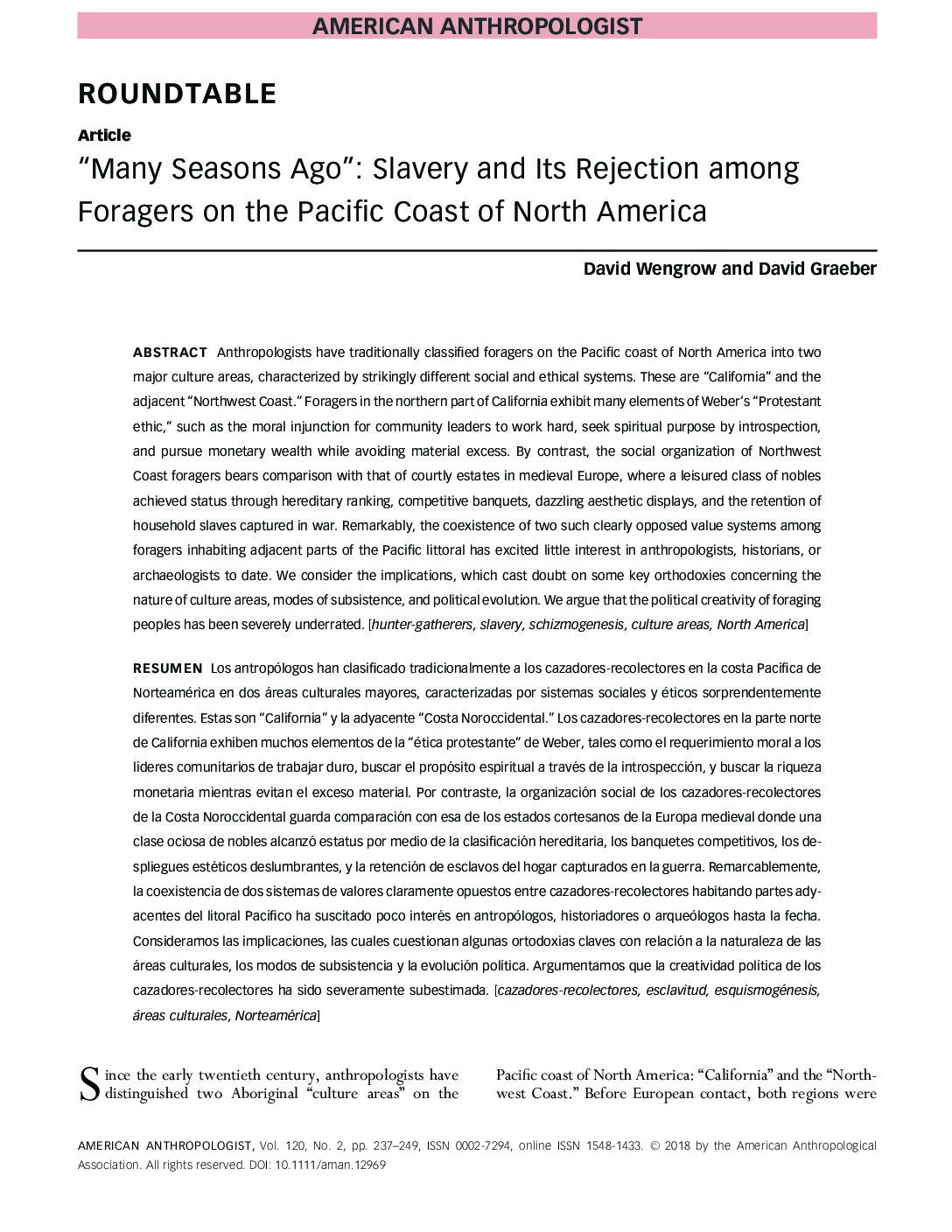
Many Seasons Ago”: Slavery and Its Rejection amongForagers on the Pacific Coast of North America
Anthropologists have traditionally classified foragers on the Pacific coast of North America into two major culture areas, characterized by strikingly different social and ethical systems. These are “California” and the adjacent “Northwest Coast.”
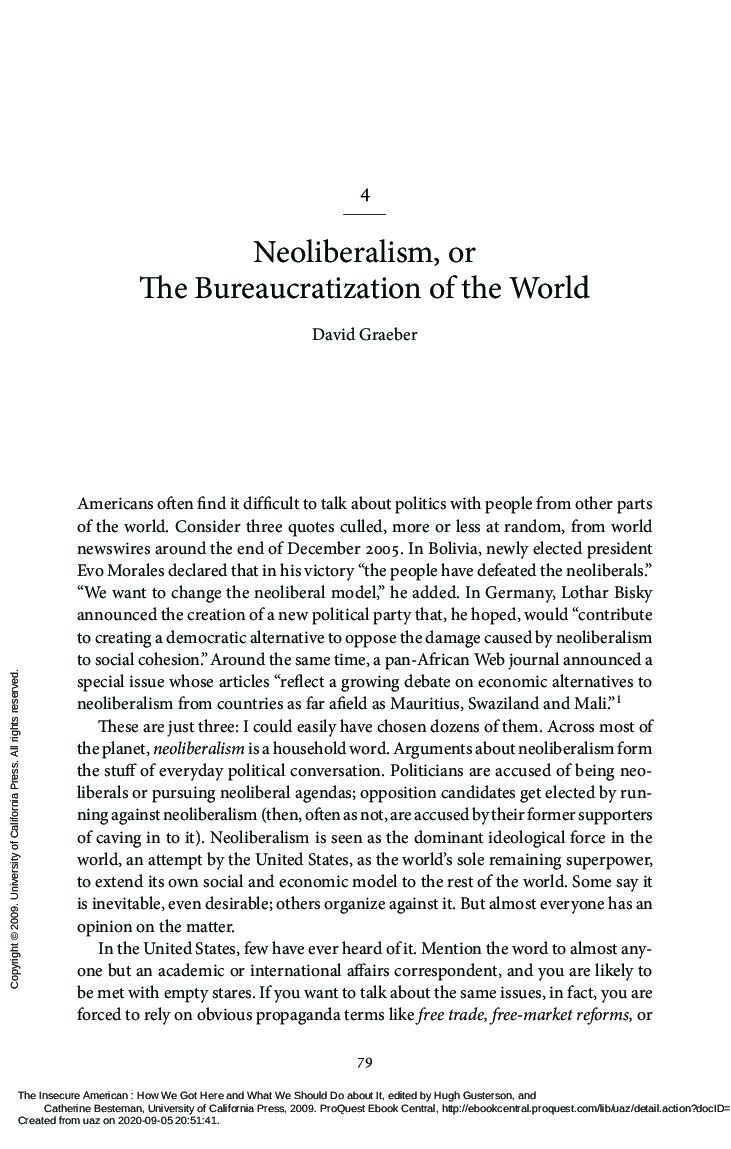
Neoliberalism, or The Bureaucratization of the World
Americans often find it difficult to talk about politics with people from other parts of the world. Consider three quotes culled, more or less at random, from world newswires around the end of December 2005. In Bolivia, newly elected president Evo Morales declared that in his victory “the people have defeated the neoliberals.”

Note worthy: what is the meaning of money?
It affects every aspect of our lives, is often said to be the root of all evil, and the analysis of the world that it makes possible – what we call “the economy” – is so important to us that economists have become the high priests of our society. Yet, oddly, there is absolutely no consensus among economists about what money really is.
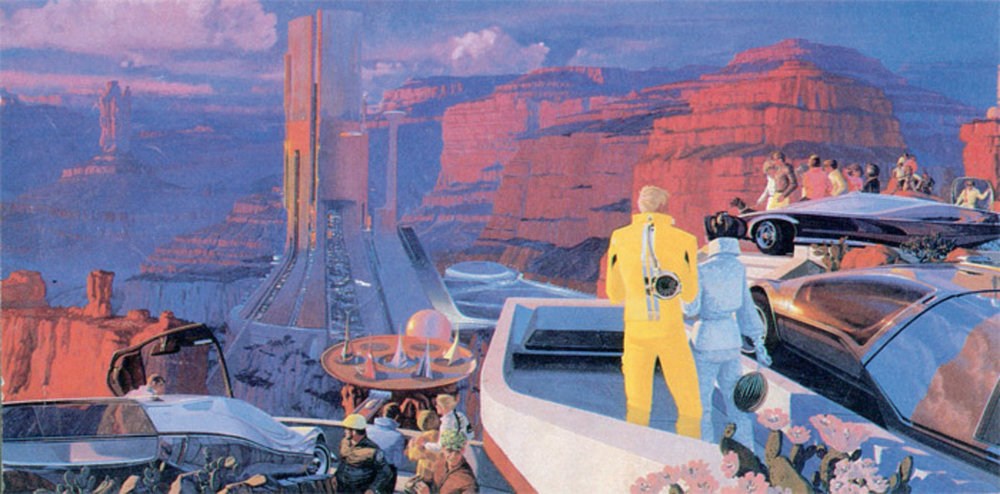
Notes on Desire
“The idea that by seizing the object of your desire you would resolve the issue was actually considered a symptom of melancholia. The fantasies themselves are the realization of desire.”
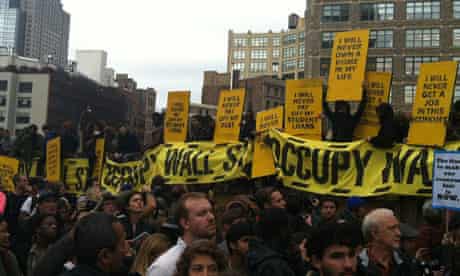
Occupy and anarchism’s gift of democracy
As the history of past movements all make clear, nothing terrifies those running America more than the danger of true democracy breaking out. As we see in Chicago, Portland, Oakland, and right now in New York City, the immediate response to even a modest spark of democratically organised civil disobedience is a panicked combination of concessions and brutality.

Occupy Democracy is not considered newsworthy. It should be
You can tell a lot about the moral quality of a society by what is, and is not, considered news. From last Tuesday, Parliament Square was wrapped in wire mesh.
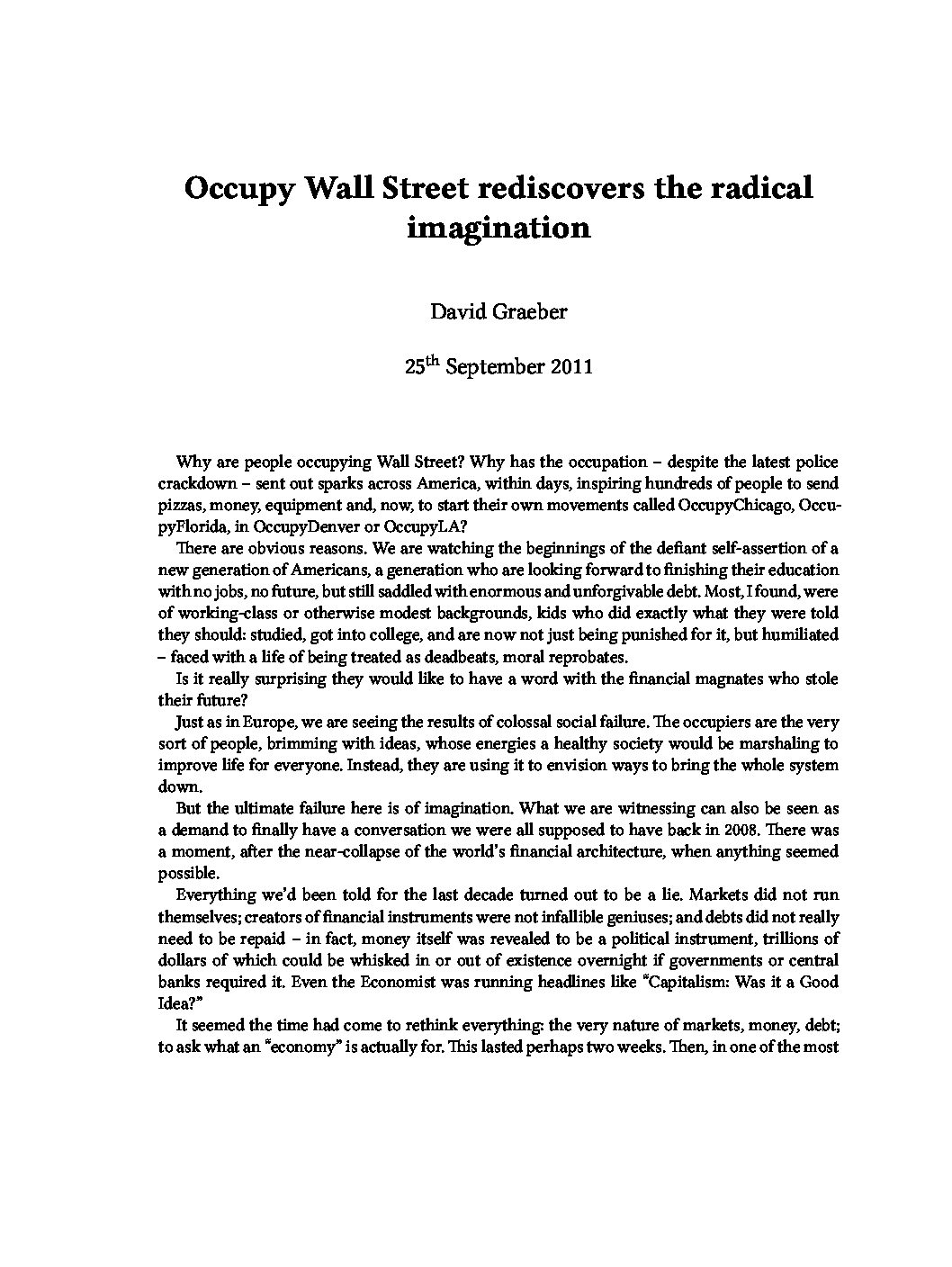
Occupy Wall Street rediscovers the radical imagination
Why are people occupying Wall Street? Why has the occupation – despite the latest police crackdown – sent out sparks across America, within days, inspiring hundreds of people to send pizzas, money, equipment and, now, to start their own movements called OccupyChicago, Occu- pyFlorida, in OccupyDenver or OccupyLA?




